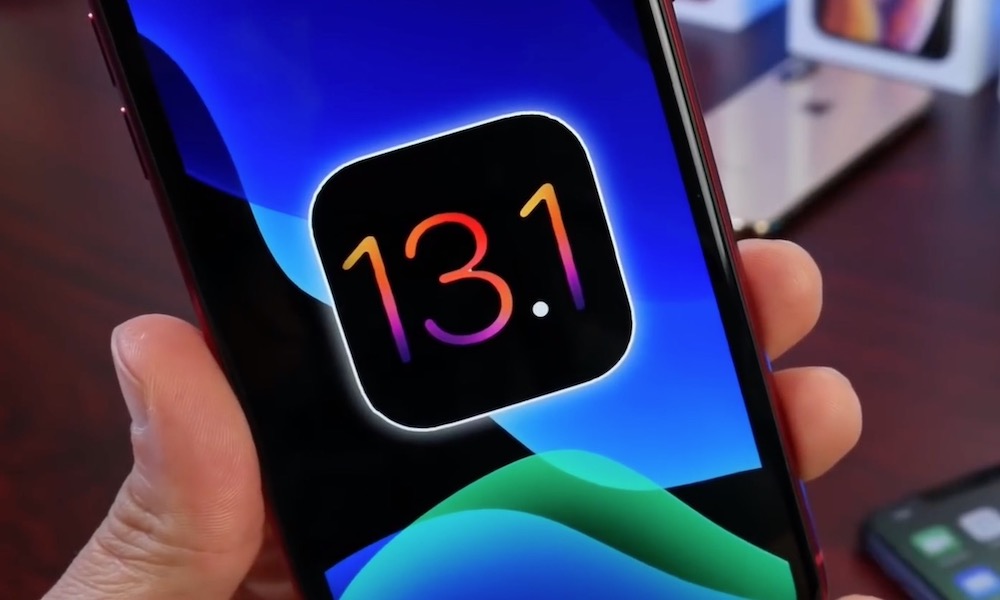Could Apple Have Released the iOS 13.1 Beta Early to Avoid iPhone Tariffs?
 Credit: Jablickar
Credit: Jablickar
Toggle Dark Mode
Earlier this month, Apple did something highly unusual. It released the first beta version of iOS 13.1 before iOS 13 was even released (or done with its own beta testing cycle, for that matter).
That move caused a bit of a stir among the beta testing and developer communities, along with the larger Apple blogosphere. And we still don’t really know what’s going on. But one tech journalist has a theory — and it could make more sense than other ideas.
Why Features Doesn’t Make Sense
It appears, at this point, that iOS 13 is currently “locked in for release,” according to iOS developers who are beta testing the new software.
Previously, many developers and beta testers theorized that the split was due to buggy behavior and features being “held back” from iOS 13’s initial release.
But based on Apple’s past beta testing timelines, that doesn’t make a lot of sense. Typically, versions of iOS would go through a few more beta cycles through September before they reach Golden Master.
That means splitting the iOS 13 beta cycle is fairly unprecedented. And without a good reason, it doesn’t look good on Apple’s part. Apple didn’t warn developers about it, and the company has held back features in the past without outright ending a beta cycle.
But technology journalist Charles Arthur has a theory that may explain why Apple did this.
iOS 13.1 Split Is Because of Tariffs
In a nutshell, Arthur’s theory suggests that Apple split its iOS 13 beta testing cycle to avoid potential tariffs being placed on its product.
Basically, the new iPhones will ship with the supposedly “unfinished” iOS 13 software (which, again, Apple has apparently ended the beta testing for early). Apple will continue to work on iOS 13.1 until the iPhones are announced and may offer the iOS 13.1 update almost immediately after they’re delivered to customers.
When you look at the current trade war situation, this sort of makes sense.
Installing the latest software is typically one of the very last steps before an iPhone is boxed and shipped, which usually allows new versions of iOS more time for testing and maturing.
To get iOS 13, even an unfinished version, onto iPhones so soon would require Apple to cut off the beta cycle much earlier than normal. But Arthur theorizes that Apple is trying to get large shipments of iPhones into the country before new tariffs are enacted.
Essentially, the move allows Apple to ship its new iPhones early with a version of iOS 13, getting them into the country before they’re hit by new tariffs. Any software-related wonkiness could be fixed by a rapid iOS 13.1 release.
How Legitimate Is This?
Of course, shipping an iPhone with what is basically unpolished software could end up being a disaster itself. It all comes down to whether or not Apple thinks price hikes due to tariffs would be a bigger hit.
Arthur notes that he heard, third-hand, form a source within Apple that the company is doing this to avoid tariffs. Despite that, Arthur’s theory is just a theory. And while it may be logical speculation, you should still take it with a grain of salt.
But while this may be an unprecedented and risky move, it may be justified given the current risky and highly unusual trade war between the U.S. and China.
Tariffs on Chines imports have the potential to bump up iPhone prices. Apple may not want to eat that additional cost, and consumers sure aren’t going to be happy about them.
So while it is just a theory, it could be fairly plausible given the precarious situation surrounding Apple and the U.S. economy.
[The information provided in this article has NOT been confirmed by Apple and may be speculation. Provided details may not be factual. Take all rumors, tech or otherwise, with a grain of salt.]






